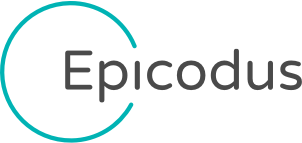By Michael Kaiser-Nyman, Epicodus President
As an aspiring programmer, it can be hard to know what programming language to learn. You'll often hear hyperbole like "In the future, everything will be written in JavaScript," or "Ruby is the most elegant language." Programmers you meet may warn you against languages they don't like, and you'll come across stories in the tech media about how some language or technology or tool is making everything else obsolete.
My advice to you is: Don't worry - just code.
Most programming languages have more similarities than differences. No matter what language you learn first, you'll need to begin by mastering the concepts of variables, branching, and looping. Most languages use similar patterns of code organization (primarily based around object-oriented design). There are variations in the syntax, structure, and tools, but by and large, programming languages have far more in common than they have differences, especially among the languages commonly used in web and mobile development.
This point really came home to me the other day, when I was chatting with an experienced developer who has worked with many languages over the years. He told me a story of joining a new team that used a language he had never used before. A junior programmer needed help with a problem, and even though the junior had more experience with the team's language, my friend immediately knew that the language probably had a tool to solve the problem at hand. He told the junior where she could probably find it, and sure enough, the junior was able to use it to solve her issue.
When I first learned to code, I agonized over what language I should learn. I started on one language, got stuck, tried another one, heard that it wasn't a good language, went back to the first, got frustrated, and so on. Sometimes it seemed like I spent as much time trying to figure out what language to learn as I did actually coding. In hindsight, I realize that no matter what language I tried, I was going to have a tough time, simply because the basic principles underlying all languages are all difficult to understand at first.
So if you're just starting out, I suggest you aspire to be like my friend the experienced developer. Instead of getting caught up on which language to start out with, just dive in. If you come to Epicodus, you'll be required to learn at least two languages before graduating, but I'd encourage you to learn even more if possible. Every language has its place, and many of the "unhip" languages like C# and Java are actually in higher demand in the job market. The more languages you know, the easier it is to pick up new concepts, dive into new projects, and, of course, get a job.

